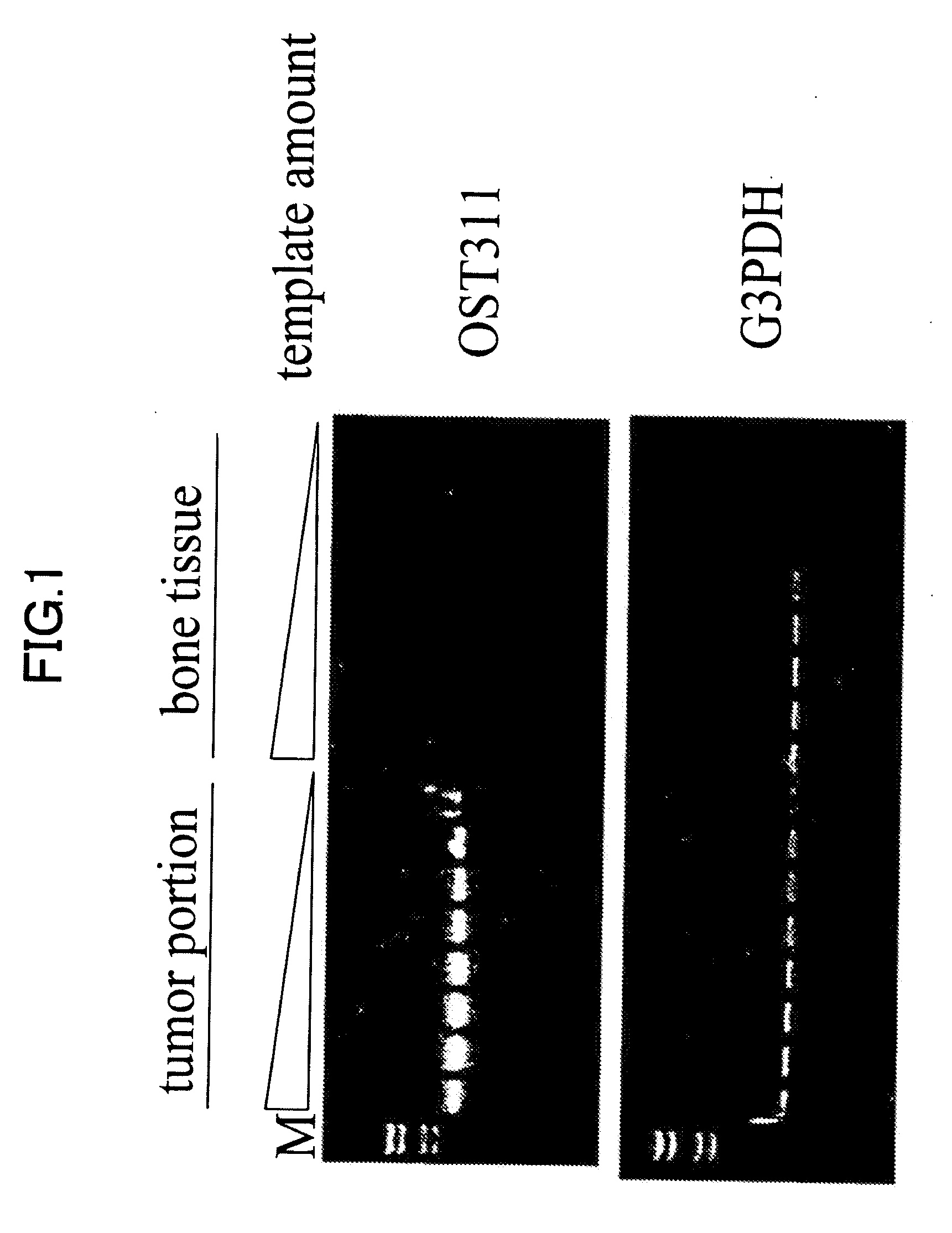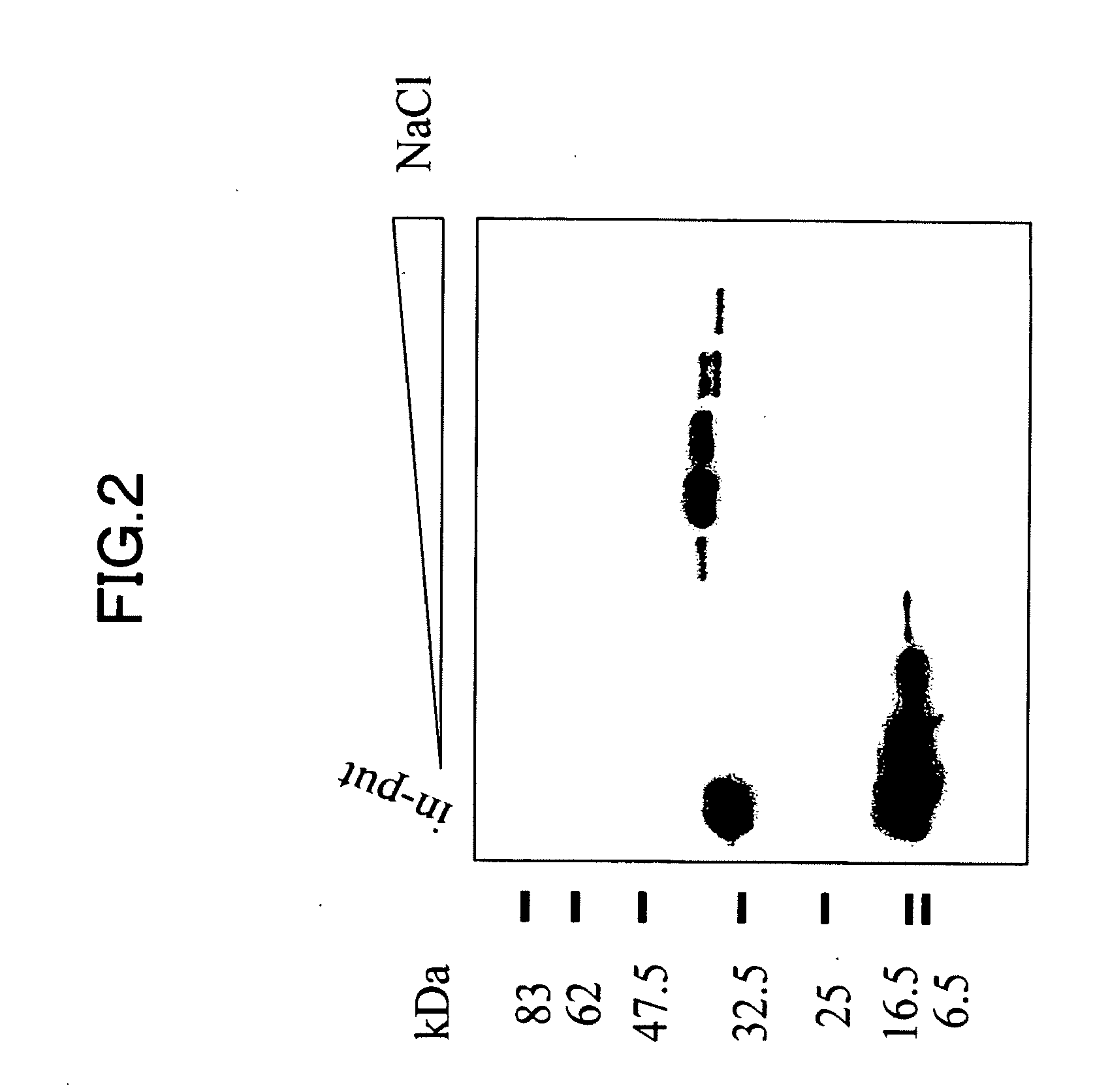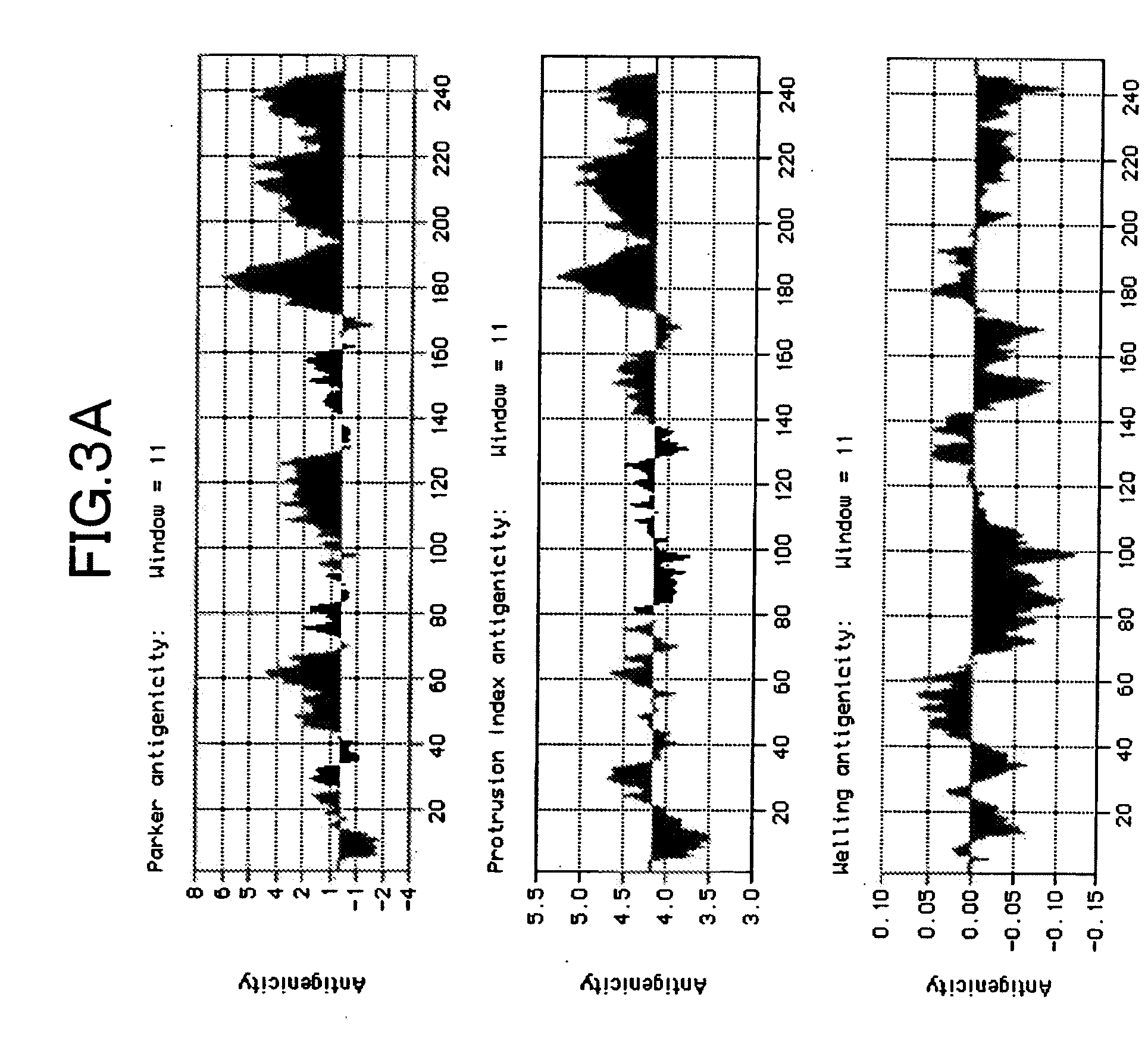Polypeptide regulating phosphate metabolism, calcium metabolism, calcification and vitamin d metabolism and dnas encoding the same
- Summary
- Abstract
- Description
- Claims
- Application Information
AI Technical Summary
Benefits of technology
Problems solved by technology
Method used
Image
Examples
example 1
Construction of Human Tumor-Induced Osteomalacia-Derived Tumor cDNA Library
[0207]Tumor tissues frozen by liquid nitrogen were homogenized in 5 ml of ISOGEN (NIPPON GENE, Japan) solvent, and then approximately 0.13 mg of total RNA was prepared according to the attached manufacturer's manual. cDNA was synthesized from 1.5 μl of the total RNA using a SMART cDNA library preparation kit (CLONTECH, USA) according to the attached manufacturer's manual. Hereinafter, this cDNA is denoted as cDNA#2. EcoR I adapter was ligated to this cDNA#2, and then inserted into ?ZAPII phage vector (STRATAGENE, USA) that had been previously digested with a restriction enzyme EcoR I. Using a Gigapack III Gold phage packaging kit (STRATAGENE, USA), a tumor-induced osteomalacia tumor phage library was constructed according to the attached manufacturer's manual. The obtained library contained a total of approximately 600,000 independent clones. Further, the above phage library was allowed to infect Escherichia ...
example 2 implementation
for Positive Screening of Tumor cDNA
Outline
[0208]The fact that tumor-induced osteomalacia is curable by surgically excising a tumor suggests a possibility of high and specific expression of the causative gene in tumors. In addition, it has been reported so far that tumor-induced osteomalacia tumors are often constituted of mesoblastic, in particular mesenchymal cells. Therefore, it is necessary to identify a gene group that expressed lowly in normal mesoblast-derived tissues, but expressed specifically and highly only in tumor tissues. Hence, as described below, positive screening to which a cDNA subtraction technique was applied was performed. Subtraction of tumor tissue-derived cDNA and cDNA isolated from a bone tissue as a control was performed, so as to enrich a gene group that specifically and highly expressed only in tumor tissues, but not expressed in bone tissues. Hybridization was performed for tumor cDNA phage library using the subtracted cDNA group as a probe, thereby obt...
example 3
Narrowing Down the Candidate Genes of Human Hypophosphatemia Inducing Factor
[0218]Homology search for the sequence information of 456 positive clones obtained in Example 2 against nucleotide sequences registered at Genbank, the nucleotide sequence database provided by NCBI was performed. As a result, a group of genes listed on Table 1 was obtained as existing genes that had appeared at high frequencies. Further, as a result of database search, there are 100 clones of unknown gene fragments of which biological activities were not known. As to nucleotide sequence information of these unknown gene fragments, overlaps among clones was further extracted as frequency information. Among them, the most frequently overlapping gene, OST311 sequence consisting of 7 clones sequentially forming one contig, was obtained. The nucleotide sequence obtained at this time ranged from nucleotide Nos. 1522 to 2770 of SEQ ID NO: 1. When a search for the gene fragment of OST311 was performed over the exist...
PUM
| Property | Measurement | Unit |
|---|---|---|
| Length | aaaaa | aaaaa |
Abstract
Description
Claims
Application Information
 Login to View More
Login to View More - R&D
- Intellectual Property
- Life Sciences
- Materials
- Tech Scout
- Unparalleled Data Quality
- Higher Quality Content
- 60% Fewer Hallucinations
Browse by: Latest US Patents, China's latest patents, Technical Efficacy Thesaurus, Application Domain, Technology Topic, Popular Technical Reports.
© 2025 PatSnap. All rights reserved.Legal|Privacy policy|Modern Slavery Act Transparency Statement|Sitemap|About US| Contact US: help@patsnap.com



